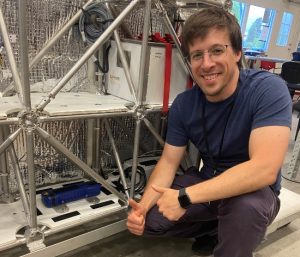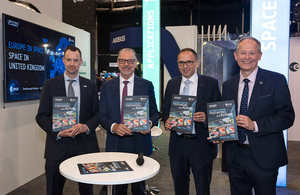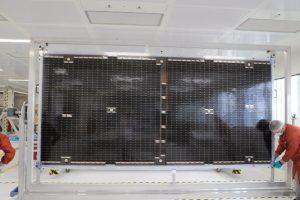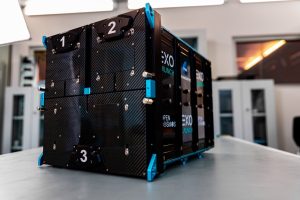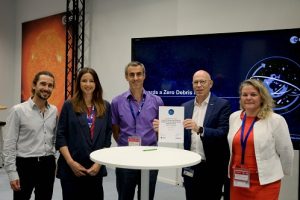The Canadian company – based in Sherbrook, southern Quebec – is developing quantum diamond magnetometers capable of providing readings from space.
ESA
For the ESA, the company has been contracted to evaluate the viability of using its quantum diamond magnetometer technology in space.
It will be tested on both the reliability and accuracy of the sensor technology, as well as improving understanding of how these sensors could be deployed on a satellite in space for a range of applications.
According to the company, the contract focuses on applications “enriching human understanding of the Earth and its magnetic environment”. For example, satellite-based magnetometers can be useful in monitoring magnetic storms, which can disrupt navigation and communications on Earth.
CSA
The CSA will be testing the SBQuantum’s magnetometer at an altitude of 40km as part of its own STRATOS Program.
The testing will demonstrate the instrument’s ability to collect precise data in temperatures as low as -60 Celsius (-76 Fahrenheit) and low-pressure environments, says the company, while also being exposed to radiation.
The project will include a demonstration of magnetic field-based positioning (whose signal cannot be jammed) using a quantum diamond magnetometer, as opposed to relying on the infrastructure of traditional GPS.
The commercial value of the contracts was not revealed.
SBQuantum magnetometers
“These contracts are further evidence of the tremendous potential of the quantum diamond magnetometers we are commercialising at SBQuantum,” said David Roy-Guay, CEO and Co-founder of SBQuantum (pictured).
“Years of investment, research and development are now beginning to pay off, as leading organisations in space exploration are acknowledging that our hardware has the potential to provide an important advantage over existing technologies. Furthermore, these sensors can be deployed for a range of applications, and therefore provide significant value to the user at a fraction of the cost of the legacy technologies currently in use.”
For its part, the European space agency was optimistic for the role of quantum technology in space:
“The technology is promising, and we are optimistic that its advantages can be realised in space as well,” added Aaron Strangfeld, a Quantum Engineer at the ESA.
See also: Nasa’s Cold Atom Lab demonstrates atom interferometer
 Electronics Weekly Electronics Design & Components Tech News
Electronics Weekly Electronics Design & Components Tech News
